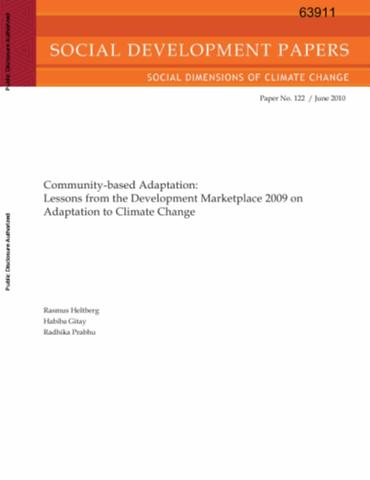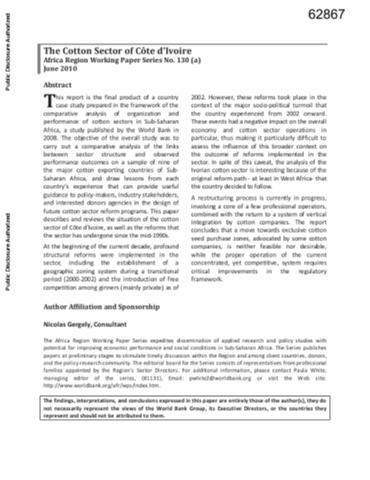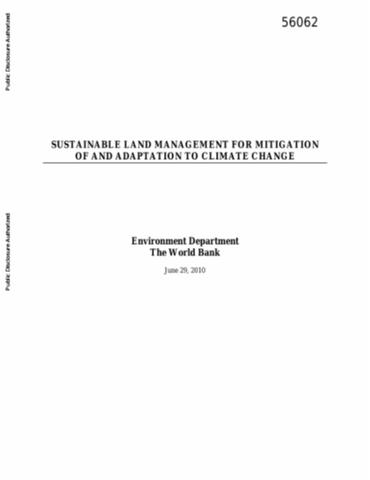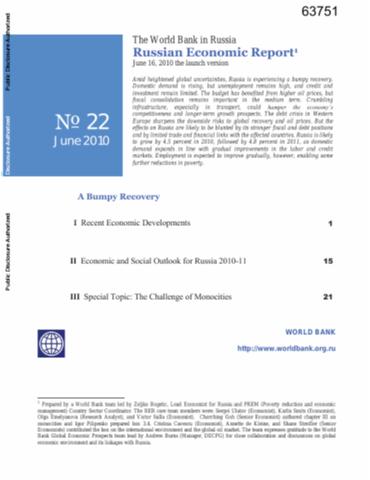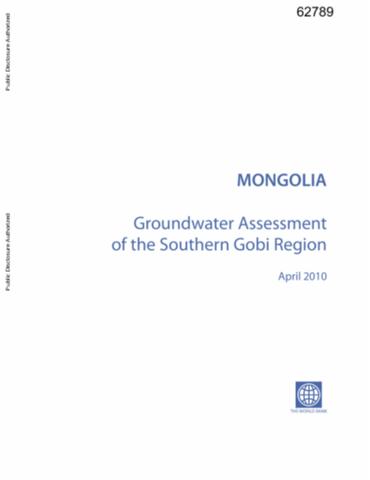The World Bank is a vital source of financial and technical assistance to developing countries around the world. We are not a bank in the ordinary sense but a unique partnership to reduce poverty and support development. The World Bank Group has two ambitious goals: End extreme poverty within a generation and boost shared prosperity.
- To end extreme poverty, the Bank's goal is to decrease the percentage of people living on less than $1.25 a day to no more than 3% by 2030.
- To promote shared prosperity, the goal is to promote income growth of the bottom 40% of the population in each country.
The World Bank Group comprises five institutions managed by their member countries.
The World Bank Group and Land: Working to protect the rights of existing land users and to help secure benefits for smallholder farmers
The World Bank (IBRD and IDA) interacts primarily with governments to increase agricultural productivity, strengthen land tenure policies and improve land governance. More than 90% of the World Bank’s agriculture portfolio focuses on the productivity and access to markets by small holder farmers. Ten percent of our projects focus on the governance of land tenure.
Similarly, investments by the International Finance Corporation (IFC), the World Bank Group’s private sector arm, including those in larger scale enterprises, overwhelmingly support smallholder farmers through improved access to finance, inputs and markets, and as direct suppliers. IFC invests in environmentally and socially sustainable private enterprises in all parts of the value chain (inputs such as irrigation and fertilizers, primary production, processing, transport and storage, traders, and risk management facilities including weather/crop insurance, warehouse financing, etc
For more information, visit the World Bank Group and land and food security (https://www.worldbank.org/en/topic/agriculture/brief/land-and-food-security1
Resources
Displaying 4666 - 4670 of 4907Community-based Adaptation
The Development Marketplace 2009 focused on adaptation to climate change. This paper identifies lessons from the Marketplace and assesses their implications for adaptation support. The findings are based on: statistical tabulation of all proposals; in-depth qualitative and quantitative analysis of the 346 semi-finalists; and interviews with finalists and assessors. Proposals were fuelled by deep concerns that ongoing climate change and its impacts undermine development and exacerbate poverty, migration and food insecurity.
The Cotton Sector of Côte d'Ivoire
This report is the final product of a country case study prepared in the framework of the comparative analysis of organization and performance of cotton sectors in Sub-Saharan Africa, a study published by the World Bank in 2008.
Sustainable Land Management for Mitigation of and Adaptation to Climate Change
The climate change (CC) caused by increase in atmospheric concentration of CO2 and other Greenhouse Gases (GHGs), can be addressed through adaptation and mitigation strategies. Adaptation consists of strategies which minimize vulnerability to CC. The objective is to increase resilience of the ecosystems and communities through adoption of specific sustainable land management (SLM) techniques that have adaptive benefits. On the other hand, the goal of mitigation strategies is to enhance soil and vegetation (land) sinks for absorbing atmospheric CO2 and to minimize net emissions.
Russian Economic Report, No. 22, June 2010
Amid heightened global uncertainties, Russia is experiencing a bumpy recovery. Domestic demand is rising, but unemployment remains high, and credit and investment remain limited. The budget has benefited from higher oil prices, but fiscal consolidation remains important in the medium term. Crumbling infrastructure, especially in transport, could hamper the economy's competitiveness and longer-term growth prospects. The debt crisis in Western Europe sharpens the downside risks to global recovery and oil prices.
Mongolia
The report looks critically at the water resources and the current and projected future water demands in the Southern Gobi Region (SGR) using the widely dispersed data and information that are currently available. An important conclusion of the report is that almost all the significant sources of groundwater in the SGR are 'fossil' or 'non-renewable', meaning that they are finite resources which cannot be replenished. Not only will that, but pumping water out of these fosil aquifers tend to cause a drop in the groundwater levels above them.






